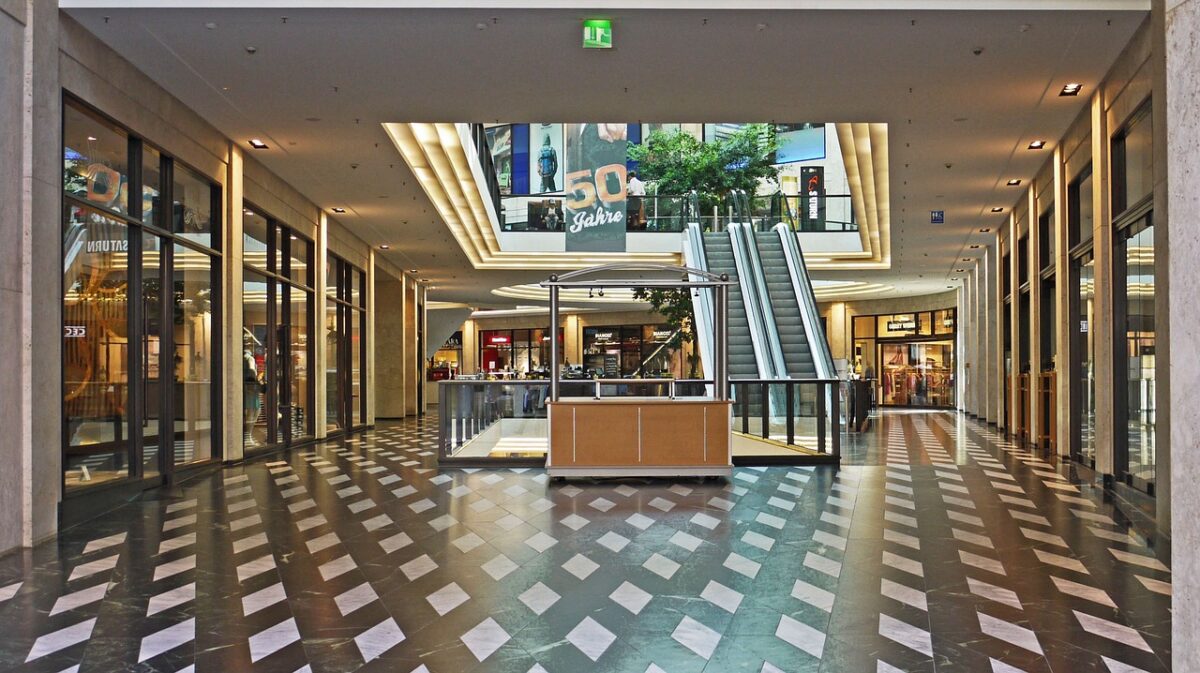By James A. Schnur, CCIM
President and Designated Managing Broker
Integrated Real Estate Solutions
LinkedIn
The retail landscape is undergoing a profound transformation. As e-commerce continues to surge, many traditional shopping malls are struggling with declining foot traffic and store closures. Instead of allowing these massive retail spaces to sit vacant, developers and investors are exploring adaptive reuse strategies—converting malls into distribution hubs to meet the growing demand for industrial real estate. This trend, known as mall redevelopment, is reshaping commercial real estate, and offering new opportunities for logistics and last-mile delivery.
The Rise of Adaptive Reuse in Retail Real Estate
The concept of adaptive reuse involves repurposing existing structures for new functions rather than demolishing and rebuilding from scratch. In the case of struggling shopping malls, this can mean transforming them into warehouses, fulfillment centers, and distribution hubs. With the boom in e-commerce, retailers, and third-party logistics (3PL) providers are increasingly seeking strategically located spaces to store and ship products more efficiently.
By converting malls into industrial facilities, companies can take advantage of the prime locations, ample parking, and large interior spaces that these properties already offer. This approach not only reduces construction costs but also minimizes urban blight and revitalizes underutilized areas.
Why Convert Malls into Distribution Hubs
Shopping malls remain prime candidates for adaptive reuse for a variety of purposes. But unused mall space is particularly attractive to be repurposed as warehouse and distribution centers for the following reasons:
- Flexible Space: The large open areas found in malls, particularly the spaces vacated by anchor stores, can accommodate storage racks, sorting areas, and trucking docks.
- Strategic Locations: Built in accessible urban or suburban areas, malls sit near main roads and public transportation. This access to population centers ensures faster delivery times.
- Existing Infrastructure: Shopping malls have existing restroom facilities, HVAC systems, water, and electricity, reducing the cost of redevelopment.
- Economic Practicality: Adapting malls as distribution centers saves the cost of acquiring new property or building new facilities.
Whether utilizing mall buildings or repurposing mall properties, large e-commerce and logistics companies are already adapting these sites for distribution and fulfillment centers. For example, Seefried Industrial Properties Inc., based in Atlanta, bought the semi-demolished Randall Park Mall in Cleveland, Ohio, in 2014 and began planning the North Randall Amazon sorting and fulfillment Center; the 855,000 square foot facility opened in 2018.
Challenges of Retail-to-Warehouse Conversions
While the adaptive reuse of malls for industrial purposes presents numerous benefits, there are also challenges that developers and businesses must address.
1. Zoning and Regulatory Hurdles
Many shopping malls are zoned for commercial or retail use, meaning developers may need to work with local governments to secure zoning changes for industrial operations. Some municipalities may resist such conversions due to concerns about increased truck traffic, noise, or job losses in the retail sector.
2. Structural Limitations
Malls were designed for shoppers, not forklifts and palletized goods. The floor loads, ceiling heights, and docking capabilities may not meet typical warehouse standards, requiring significant modifications to support large-scale logistics operations.
3. Community Pushback
Residents and local businesses may oppose mall-to-warehouse conversions due to concerns about increased congestion, loss of retail jobs, or changes in property values. Effective community engagement and clear communication about economic benefits, job creation, and traffic mitigation strategies are essential for gaining public support.
E-commerce has made its mark, and brick-and-mortar stores have suffered as a result. But through adaptive reuse projects, shopping malls are poised to become partners with these online businesses and logistics companies by repurposing them as fulfillment and distribution hubs. Retailers, developers, and urban planners must collaborate and explore such innovative solutions for “dead” or “struggling” shopping malls in their neighborhoods.
As you contemplate a retail-to-warehouse conversion in your area, consider enlisting the assistance of consultants to help you envision the space as a distribution hub. The professionals at Integrated Real Estate Solutions, Inc. offer fixed-fee real estate consulting services to assist you in adaptive reuse projects.
Integrated Real Estate Solutions, Inc. provides clients with the in-depth knowledge and experience that is critical to determine the right path to your next move, lease renewal, or strategic repositioning of your real estate portfolio. Contact us or call 847.550.0160 today about your needs and put our success to work for you.

